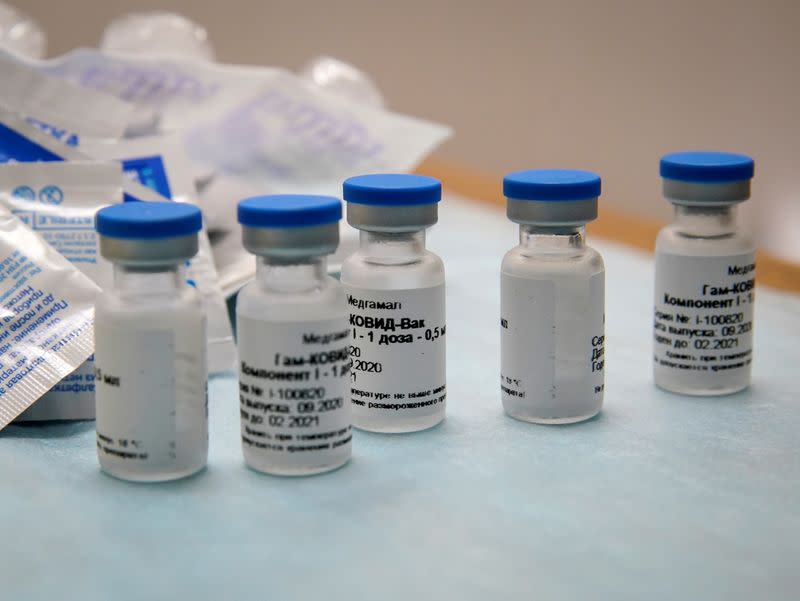BRASILIA (Reuters) – Brazil’s health regulator is seeking more data on Russia’s Sputnik V coronavirus vaccine before considering its approval for emergency use.
The documents supporting the request by the pharmaceutical company União Química for the emergency use of the vaccine were returned to the company because they did not meet the minimum criteria, the agency said on Saturday.
In a note on the website of the Ministry of Health, Anvisa’s regulatory body stated that the request did not offer adequate guarantees on Phase III clinical trials and issues related to the vaccine’s manufacture.
União Química is seeking approval for the use of 10 million doses of Sputnik V in Brazil in the first quarter of this year.
Russia’s RDIF sovereign wealth fund, which is promoting Sputnik globally, said on Sunday that Anvisa had requested additional information that would be provided shortly.
The statement states that such requests from regulators are standard procedure and do not mean that the registration offer was rejected. He also affirmed that the legislation in progress in the Brazilian Senate, if approved, will allow the use of vaccines approved by other countries.
Moscow approved Sputnik for domestic use in Russia, although clinical trials have not yet been completed.
Anvisa officials had previously said that the Sputnik V vaccine would have to undergo Phase III clinical trials in Brazil before its use is authorized.
Anvisa said on Saturday that any applicant requesting authorization for emergency use must demonstrate that the vaccine will bring safety and effectiveness in the long term.
The regulator is due to make a decision on Sunday to authorize the emergency use of vaccines developed by Sinovac of China and AstraZeneca of Great Britain.
RDIF said Sputnik had already been registered in Serbia, Belarus, Argentina, Bolivia, Algeria, Venezuela, Paraguay and by Palestinian authorities.
Applications in two more countries are expected next week, he said.
(Reporting by Jamie McGeever and Eduardo Simoes in Brasília; Additional reporting by Andrew Osborn in Moscow Editing by Dan Grebler and David Goodman)
